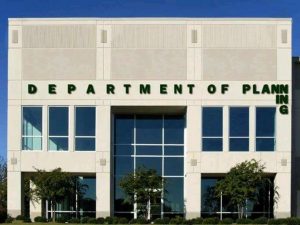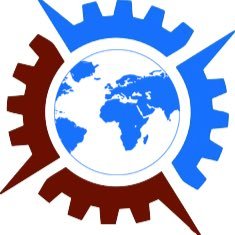If you would ask me, how I define my idea of a great scrum master, presumably I would take you to a daily meeting. For me there is no better place to describe and see, what scrum masters have to do for their teams – and why it is so important that they do an excellent job.
The Daily Routine
from https://www.agilealliance.org/glossary/daily-meeting/:
Each day at the same time, the team meets so as to bring everyone up to date on the information that is vital for coordination: each team members briefly describes any “completed” contributions and any obstacles that stand in their way. Usually, Scrum’s Three Questions are used to structure discussion.
Maintain Focus
“What has been done? What comes next? Are impediments to be sorted out?” These are the questions each team member should answer in the daily meeting. Purpose number one is to inform the rest of the team. But there is more.
Answers in a daily should be genuine and authentic. No “I have worked on the task assigned to me”, “I continue with my task”, and “I’ll work around my impediments”, but real progress has to be reported. It helps to focus on getting things done, avoids work on several topics in parallel, and thereby improves performance considerably.
Great Scrum Masters will remind the team of sticking to the content and – wherever necessary – helps them to improve on finding the right messages. As a side effect, teams will feel much more successful if there is real content and not just empty phrases.
Encourage Collaboration
“Which activities are done by collaborative exercises?” The daily must create transparency on it, as collaborating team members should have mentioning by others. This is real teamwork.
The other way round, missing mentioning is a hint for deficits in the teamwork. Either people think it is not worth mentioning the contribution of others or the contribution is not happening at all. This must become obvious.
Great Scrum Masters will foster mentioning by remembering team members of the value of it. Whenever necessary they will address it with them directly and encourage mentioning. Others will recognize the appreciation and are likely to perform in charge of the team rather than on their own behalf.
Drive Consensus
“What are the distractions? Are you missing something to keep going? Are we on track?” Impediments as well as risks and deviations from plans are to be considered in the daily meeting. Even if it helps, you do not need to maintain a burn down chart to track progress. Just remind the team members to talk about it.
Whenever something pops up, the team needs to decide how to respond to it. This can be changes of plans, workarounds, or escalations, where the support of others is required. Important is that really the team takes the decision and not an individual. It should be a consensus in the team.
Great Scrum Masters will ensure transparency on impediments, risks, and progress by confronting the team with it in the dailies. If the team is doing hard in getting to a consensus, they will moderate discussion and take the role of a mediator. Escalations will be addressed with stakeholders by them, so the team will have timely updates and can handle implications.
Celebrate Success
The daily meeting is the first place where team members report on their accomplishments. “What has been achieved?” is the perfect question to bring value to attention.
Though we like to celebrate success, even misses are important to be mentioned, as they result in important learning. The team has to understand that achievement requires learning. Ideally teams will celebrate learning from failures in the same way as the successful implementation following up.
Great Scrum Masters will encourage team members to talk about success and balance it out in the group. It will help to value learning and the contribution of each individual to the group. If that works out, the team will not only meet as a team. They will behave as a team.
Track Done
“Is anything ready to be put into the next increment? Do we know how to present it to our stakeholders?” Team members will mention their results in the dailies. This is the right place to prepare the team to deliver.
Missing ideas for presentations and deliverables breaking the definition of done are severe issues for an increment. Doubts on the capability to deliver can be worse than known issues and skipped features, as they tackle trust. The other way round a clever presentation and transparent communication are the fundament for a great relation with stakeholders and the basis for trust.
Great Scrum Masters will support the team in tracking and communicating progress. The better this works, the stronger the team will be. External perception and internal confidence come hand in hand. The Scrum Master is also the trust master.
Address Accountability
“Which are the risks remaining in a sprint? Do we have planned appropriate actions? Can we deliver with an adequate quality?” Progress is not only about implementation of features. Often teams will mention risks they are facing and that need to be sorted out.
The responsibility for the deliverables has to become part of the team’s DNA. Built-in quality means, that quality is considered all the time rather than just in plans or by dedicated “approvers”. It is the key to find acceptance for taking accountability into the team. It is the must have for empowerment of teams.
Great Scrum Masters will remind the team about their accountability for what they do. Team members will need these reminders from time to time, especially if they have their heads deep down in some complex development or complicated decision making. This way the Scrum Master becomes the team improver.
The Daily Challenge
What makes daily routines exciting for teams? A Scrum Master has to meet the fine line between a ceremony master and a team challenger. The team will need the routine they can rely on, as it provides stability to them. On the same hand side they will need the challenges, which is creating focus for driving improvements. In the end there is nothing better for a team than a stable environment for continuous learning.
If you are a team member and “merely” are looking for ways to benefit more from your Scrum Master (look for that environment for continuous learning!), give feedback to them. Make use of the retrospective to tell about your expectations on the daily routine. Make it public, if it has become dull to you. Your Scrum Master needs this feedback as trigger for self-reflection and improvement.
On the other hand side, if you are a scrum master and looking for ways to improve your skills (become the improver that your team deserves!), you must not wait on your team. It will expect you to be the improver. Rather start to connect with other Scrum Master. Create a community. It can be very helpful to start looking at how they act in their teams. It will give you ideas and helps you to reflect on how things are working in your team.
You should – at least from time to time – take a active part active in the retrospectives as well. “What is working good for you?”, “what is not working good for you?”, and “how does the team judge on it?” are questions raised by a Scrum Master, which should be discussed with the team.
In an ideal world, Scrum Masters do not have to speak up anymore. But, they would be missed out by the team if they are not there, as they remind the team to improve. The other way round, if the daily routine becomes a place to file a report rather than to meet as a team, this post is the call for action.
featured image by rawpixel.com






